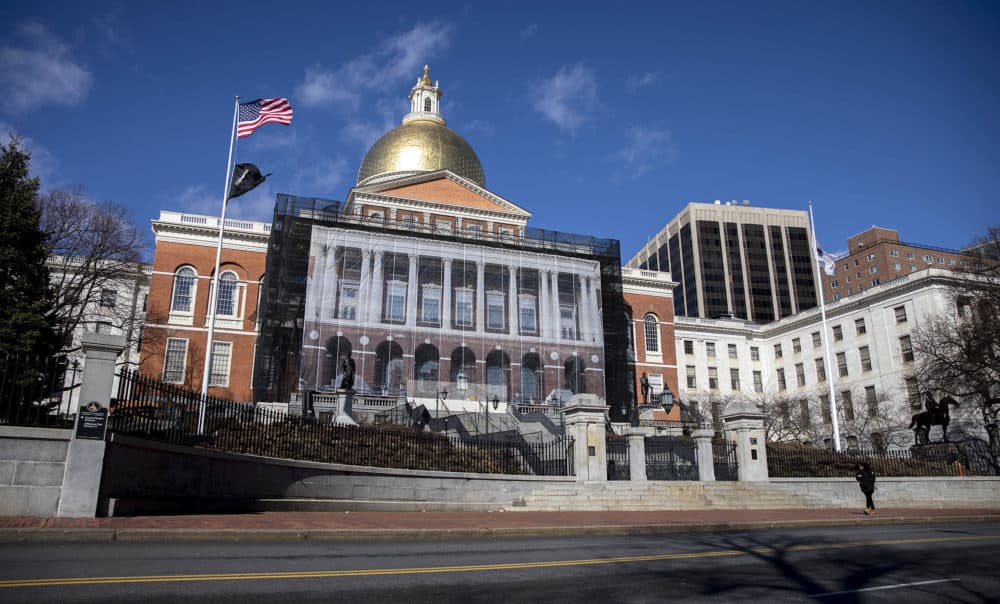Advertisement
Session scramble punctuated by tax relief drama

It's two sides of the same coin. Legislators are rushing to complete critical business, and they are also scrambling to finish work they could have done months ago or last year.
House and Senate members will trudge back into the State House on Saturday, or deliberate from their homes or other remote locations, for the start of a pair of rare weekend formal sessions where Massachusetts residents will learn whether Democrats can put aside longstanding differences on a range of pressing issues.
The branches continue to wait for compromise bills to emerge from a series of six-member conference committees, all controlled by Democrats, that were charged with coming up with accords on mental health access, sports betting, cannabis industry reforms, open space protection, a massive infrastructure bill, and a more than $4 billion economic development package.
While there's great anticipation about what will be included and excluded from those bills, the end of formal sessions approaching on Sunday night is punctuated this year by an unexpected drama unfolding over tax relief.
Democrats baked into their economic development bill about $500 million in one-time rebates and $500 million in permanent tax relief, but appear to have been blindsided by this week's news that an existing state law is poised to trigger nearly $3 billion in tax relief this fall.
House Speaker Ron Mariano on Friday expressed an openness to changing, delaying or even undoing the 1986 voter law known as Chapter 62F, but Gov. Charlie Baker believes all of the tax relief is affordable and others are demanding that the will of the voters be honored since the state is swimming in excess revenue due mainly to tax collections that have soared in the past two years without any tax increases.
"While perhaps none of us would have predicted the astonishing amounts of revenue being collected by state government, this is exactly the type of situation that voters addressed clearly in 1986, and we need to honor their directive," Senate Minority Leader Bruce Tarr said in a Saturday morning statement. "Moreover, the very levels of tax collection that trigger the 1986 law also give us the capacity and the obligation to provide the additional relief approved by the House and Senate in the Bill Relating to Economic Growth and Relief for the Commonwealth. The circumstances of ballooning state surpluses and the enormous pressure on household budgets due to inflation and other costs demand no less, and we must proceed on both fronts."
Conference committees are supposed to limit deliberations to matters in the House and Senate bills they're negotiating, and Chapter 62F was not a consideration in either economic development bill. The lead negotiators are Ways and Means Chairs Rep. Aaron Michlewitz and Michael Rodrigues; the other conferees are Reps. Mark Cusack and Michael Soter and Sens. Eric Lesser and Patrick O'Connor.
And there's another mess newly before the Legislature. The sweeping climate policy and clean energy bill that Democrats took most of the session to assemble was returned to them late Friday with equally sweeping amendments from Baker. Now it's up to the Legislature to decide what to do with the amendments. They could try to strike an eleventh-hour deal with the governor, or they could reject the amendments and just return their original bill and see whether Baker will sign or veto it.
Lastly, because this year's state budget was completed on Thursday, four weeks after the start of the fiscal year, legislators are also fielding amendments to the $52.7 billion bill returned by Baker.
Informal sessions are planned from August through early January, and represent an opportunity to continue some work. However, certain bills can't be tackled in informals, such as bond bill and veto overrides. Also, unanimous consent - the approval of all members present - is required to advance bills during informals, which can severely limit how much can be accomplished in those sessions that unfold before and after election season.
The House gavels in at 11 a.m. and the Senate at noon.